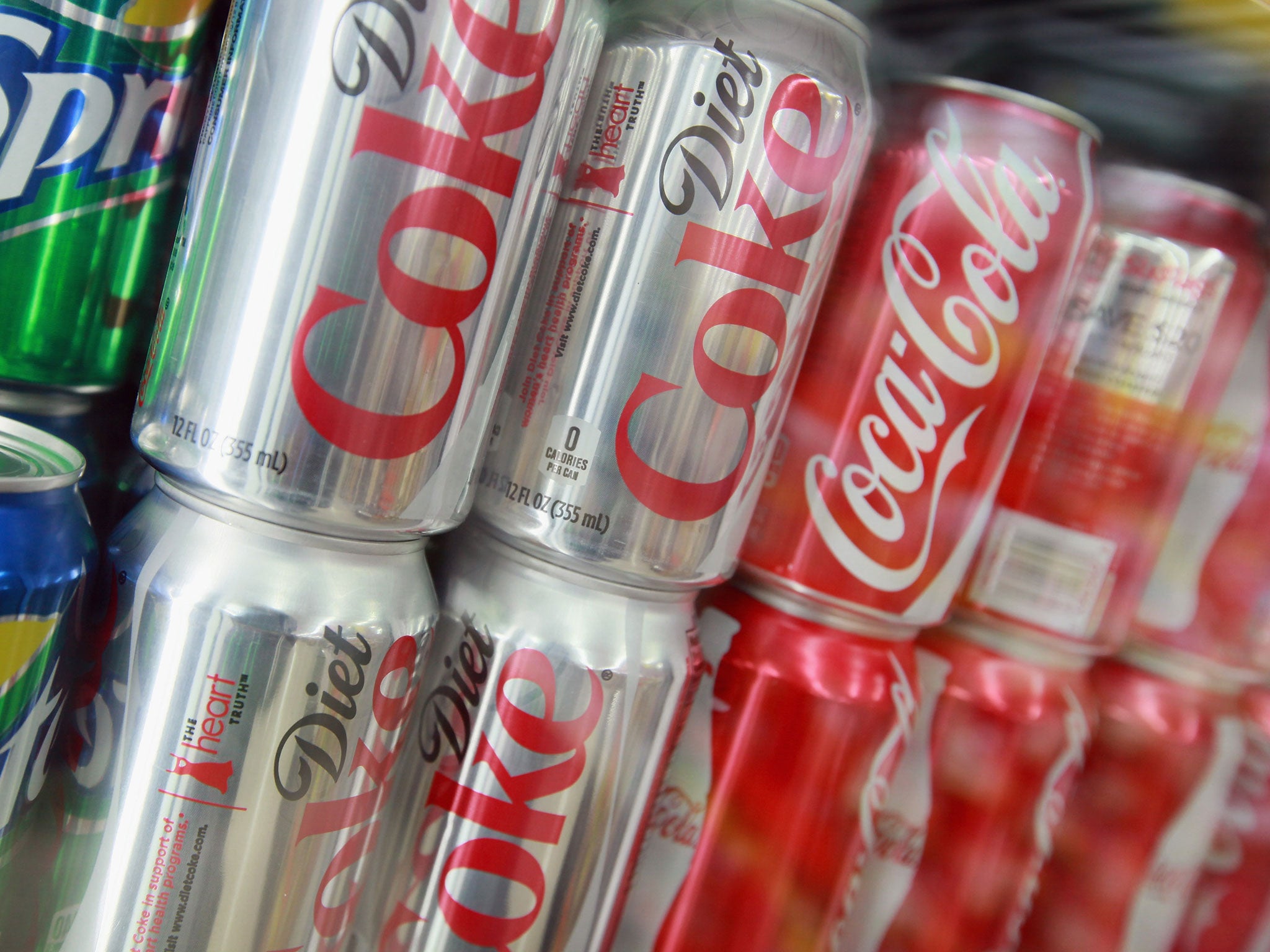Drinking diet soda during pregnancy could make children overweight, study finds
The research is the first to explore the connection between drinking artificially sweetened drinks and pregnancy – though experts caution that the results should be treated with caution

Drinking diet fizzy pop every day might lead to children being overweight, according to a new study.
In one of the first pieces of research looking at the effect of artificially sweetened drinks on pregnancy, researchers say that they have uncovered a link between taking diet carbonated drinks during pregnancy and childhood obesity.
Since added sugar is associated with obesity, many people tend to buy drinks with the “non-nutritive sweeteners” that are most commonly associated with diet drinks. But studies have found that such drinks might actually increase the risk of obesity and metabolic disease – even during pregnancy, according to the new research.
Scientists already think that obesity might be rooted in early life, and more than 20 per cent of very young children are now classified as overweight.
The new study looked at 3,033 pairs of mothers and children and asked them to report what they ate and drank during pregnancy. The researchers then measured the body mass index of the children when they were a year old.
The study found that the people who drank diet fizzy drinks daily had children who were twice as likely to be overweight at the age of 12 months.
The researchers make clear that it isn’t possible to prove that the drinks led to the overweight children – just that there is a correlation between the two.
Scientists away from the study said that further research needed to be done and that the new study didn’t mean that prospective mothers should stop drinking artificially sweetened drinks straight away.
Since only 5 per cent of mothers reported that they drank fizzy diet drinks daily, that small proportion of people were likely to be unusual in other ways. They were more likely to be overweight, for instance, so it could be that the drinking habit is an indicator of something else that could lead to the overweight children.
“So a study of this nature simply can’t establish what causes the increased risk of overweight one year olds.” said professor Kevin McConway, emeritus professor of applied statistics at the Open University. “The research report makes all this explicitly clear, and that’s really why the conclusion can’t go further than asking for more research.”
Join our commenting forum
Join thought-provoking conversations, follow other Independent readers and see their replies
Comments
Bookmark popover
Removed from bookmarks